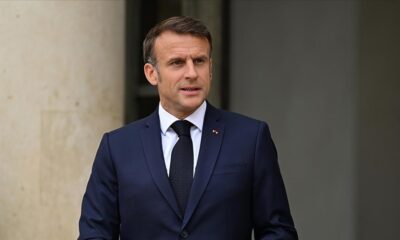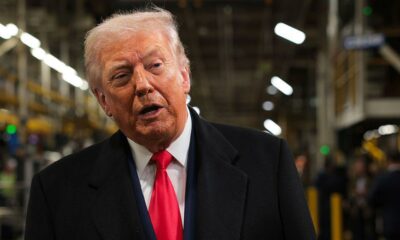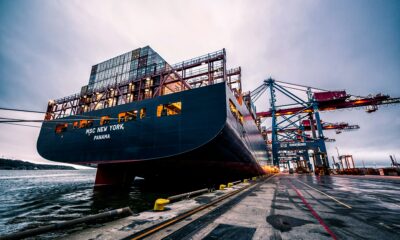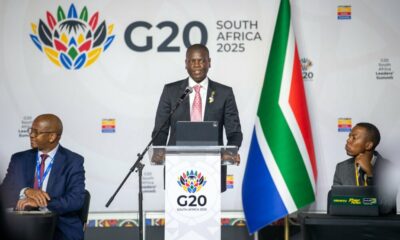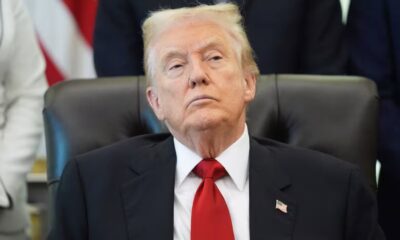News
Tensions, Tariffs and No-Shows: BRICS Rift and U.S. Absence Cast Shadow Over G20 Durban Meeting
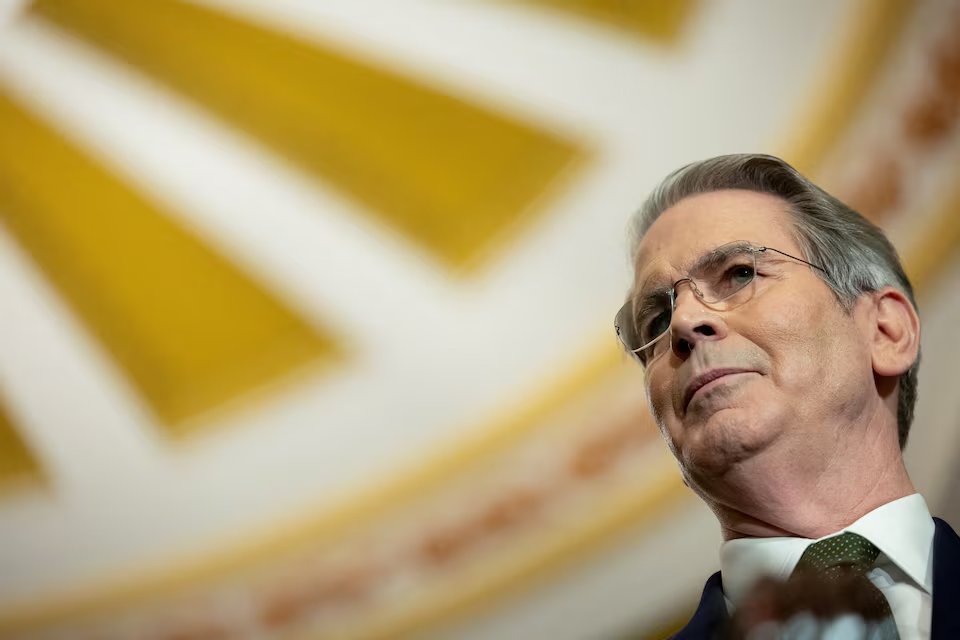
Washington’s absence, Trump’s tariff threats, and rising North-South distrust mar Pretoria’s G20 presidency
What was meant to be a moment of leadership for South Africa is fast becoming a diplomatic juggling act, as the Durban G20 Finance Ministers and Central Bank Governors Meeting kicks off under a cloud of geopolitical tension, trade hostility, and missing power players.
For the second time this year, U.S. Treasury Secretary Scott Bessent has chosen not to attend, raising eyebrows and concerns about America’s commitment to multilateralism under President Donald Trump’s “America First” redux.
And it’s not just about the empty chair.
With Trump’s sweeping import tariffs set to intensify from August 1, targeting everything from steel to pharma and increasingly aimed at BRICS members like China, India and South Africa — many fear the Durban talks may yield more friction than consensus.
US Absence: A Signal, Not a Snub?
“Not having the world’s largest economy at the table, at least at a political level, is more than just optics,” said Josh Lipsky of the Atlantic Council. “It calls into question the very future of the G20 as a credible platform.”
The U.S. is due to assume the G20 presidency next year, and insiders suggest Washington may push for a leaner G20, with fewer ambitions and less coordination, a sharp departure from the group’s original role in responding to the 2008 financial crisis.
According to Brad Setser of the Council on Foreign Relations, the old idea of shared global responsibility is fading fast:
“Trump doesn’t really care about global stability. He wants a more closed economy.”
Tariffs, BRICS and the Rise of Rival Forums
South Africa’s presidency of the G20, launched with the hopeful theme “Solidarity, Equality, Sustainability”, now finds itself managing tensions within the bloc itself.
That’s because eight G20 members are also part of the expanded BRICS+ group, a growing counterweight to Western-led institutions. With Trump aiming new tariffs squarely at BRICS countries, tensions between Washington and the global South are palpable.
According to Reserve Bank Deputy Governor Fundi Tshazibana, the biggest theme of the week is “policy uncertainty.”
That uncertainty has real-world consequences, especially for African nations facing a debt crunch. Sub-Saharan Africa’s external debt has ballooned to $800 billion, while traditional lenders are pulling back.
Chinese funding, once the continent’s primary development engine, has slowed to a trickle, exposing an $80 billion financing gap, according to Goldman Sachs.
Africa’s Fiscal Future at Risk
Veteran finance minister Trevor Manuel, now leading the G20’s Africa Expert Panel, warns that loan transparency and stricter repayment terms from China are straining African economies.
“Once the loan is made, the return is expected and that’s embedded in Chinese legislation,” said Manuel.
Meanwhile, U.S. and EU aid, which traditionally covers a quarter of African external financing, is under pressure. Trump’s government is suspending foreign aid, and European nations are redirecting budgets to defence spending.
This has left African countries, as economist Lumkile Mondi puts it, in “a difficult space”.
“High debt and low growth make the continent less attractive to investors. It risks becoming irrelevant in current global geoeconomics,” said Mondi.
Climate Commitments Stalled
While Durban was supposed to advance talks on climate-linked financial risk, the Financial Stability Board only managed to release a basic plan, holding back on concrete policy work amid the U.S. withdrawal from several key climate forums.
For Pretoria, this is a painful irony. South Africa had hoped to use its G20 year to pressure the North for meaningful climate finance and boost trust between developed and developing nations.
Instead, it finds itself navigating great power rivalries and tariff wars that directly undermine those goals.
The Stakes for South Africa
With Director-General Duncan Pieterse confirming that South Africa still aims to release a G20 communique after the meetings, many are watching closely to see whether Pretoria can balance diplomacy with principle, and elevate African priorities despite the noise.
This week’s G20 is no longer just about fiscal policy. It’s about who shows up, who gets sidelined, and who will shape the future of global cooperation.
And for Durban and Africa, it may be the clearest sign yet of a new global order, where solidarity is optional, and survival is strategic.
{Source: CNBC Africa}
Follow Joburg ETC on Facebook, Twitter , TikTok and Instagram
For more News in Johannesburg, visit joburgetc.com



